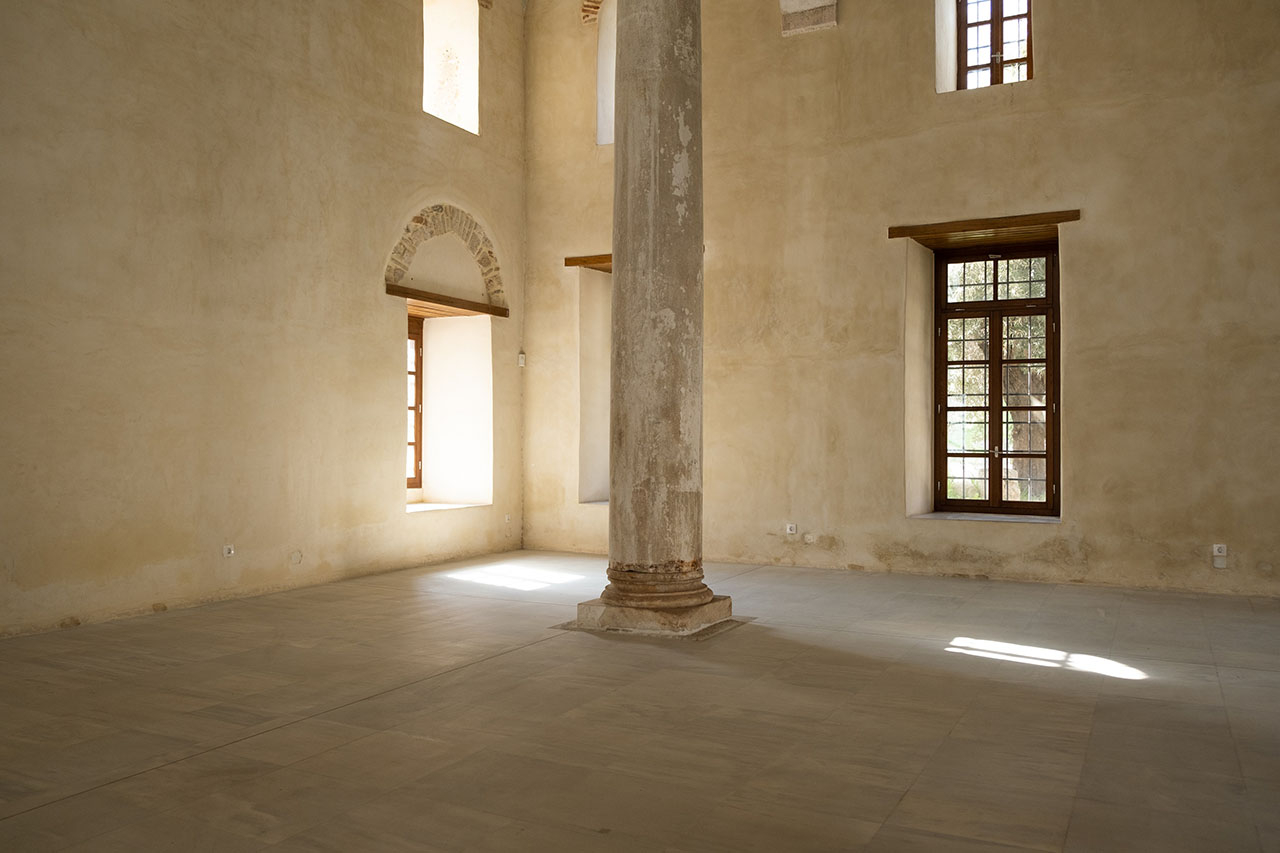Contact
ADDRESS
STAVROS NIARCHOS FOUNDATION
CULTURAL CENTER
364 Syggrou Avenue, Kallithea
TEL.
Box Office:
+30 213 0885700
Box Office email:
boxoffice@nationalopera.gr
Daily 09.00-21.00
info@nationalopera.gr
Register to our Newsletter


Dramatic lyric monologue for bass and bass clarinet
Music Philippos Tsalahouris
Performers:
Angelos Chondrogiannis bass
Lefteris Tryfonas bass clarinet
Practical information:
- Audience members can enter all venues for free, on a first come first served basis. No advance booking is required.
- Due to the limited space available in many of the festival venues, some of the concerts will be repeated up to three times per day, to give the chance to as large an audience as possible to attend them.
- The concerts of the festival will be of short duration (from 25 to 40 minutes on average), so that audience members can attend more than one, if they wish so.
- The distance from one venue to the other is small, so that audience members have the chance to enjoy many of the festival events.
- The detailed programme will be available online at nationalopera.gr and digitalculture.gov.gr, while the printed programme that will be distributed to the public will include a map with all the venues, summary descriptions of the events, and QR codes referring to the detailed programme on the GNO website.
- All preventive measures against COVID-19 will be adhered to in all venues.
Starts at 17.00, 18.00 and 19.00 | 
Duration: approx. 30 min.
Capacity max. 50 person

The work’s dramatic plot is based on David’s Psalms in Andreas Kalvos’ masterly translation. The selection of the verses was intended to create an inner spiritual association of ideas that leads from isolation and devastation to wrath and collapse. There follows the short and deeply humane prayer of Jonah, from the Old Testament book of the same title. Redemption comes through the invocation of God, followed by peace and quiet. Jonah’s text is translated by Harris Iosif. The sound of the bass clarinet supports, complements, reveals, underlines, and helps the listener focus on the essence of the text. The bass is indistinguishable from the bass clarinet; they are the same voice, a shared mind but with two sides painfully emerging from the fundamental question of existence. —P. T.
Philippos Tsalahouris
He studied flute and theory of music at the National Conservatoire on scholarship. His diplomas are accompanied by distinctions and awards. He is one of the most prolific composers of his generation. Among his over 120 works stand out his six Symphonies, the dramatic cantata Julius Caesar, The Death of Lord Byron, 24 Dances for the Benaki Museum, one-act operas, concertos, chamber music works, choral pieces, songs, etc. His works have been performed in more than twenty countries by leading ensembles and soloists. He worked for the Art Theatre Karolos Koun from 1991 to 2005, and he also collaborated with Greece’s leading theatre organisations. He was elected a regular member of the Greek Composers’ Union in May 1996. He is the director of Music Schools, as well as a teacher of composition and history of music at the Athens Conservatoire. In 2008 he was honoured with the Yannis A. Papaioannou award by the Academy of Athens.
Fethiye Mosque (Roman Agora)
The Muslim house of worship known as Fethiye Mosque, “The Conqueror’s Mosque”, is one of the most important monuments of the Ottoman era in Athens. It stands at the junction of Pelopidas and Panos Streets inside the Roman Agora. According to the prevailing view, it was built in the second half of the 17th century at a place where there used to be a Christian church and earlier than that, a mosque. It was also known as “the mosque of Staropazaro” because it stood within the area where the cereal bazaar was held. After the Greek War of Independence of 1821 and the formation of the modern Greek state, the Fethiye Mosque was used for various purposes. It was restored in 2015 and today it is both a monument open to the public and a venue that hosts various cultural events.
First Sacred Music Festival info leaflet available to read and download here
STAVROS NIARCHOS FOUNDATION
CULTURAL CENTER
364 Syggrou Avenue, Kallithea
Box Office:
+30 213 0885700
Box Office email:
boxoffice@nationalopera.gr
Daily 09.00-21.00
info@nationalopera.gr